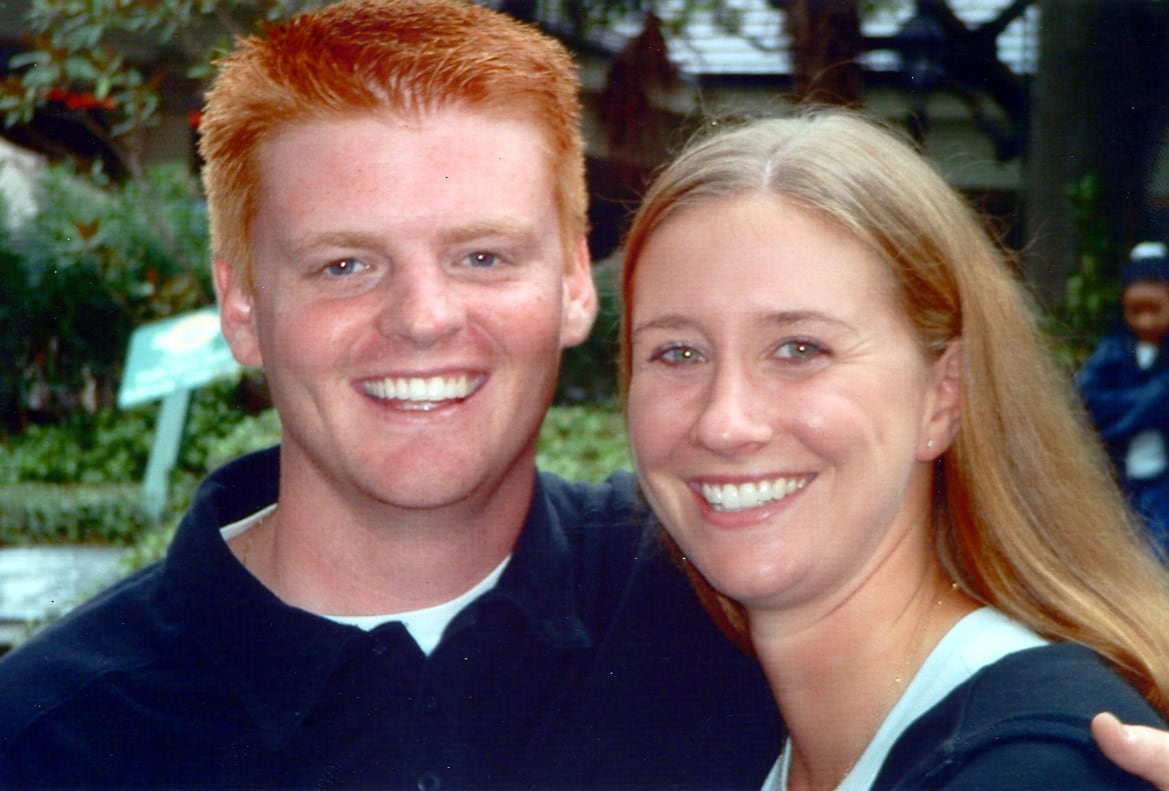The highest military appeals court says former Senior Airman Andrew Witt, on death row for the murders of a fellow airman and his wife, should get another day in court.
A five-member court on Tuesday ruled in favor of a new sentencing hearing for Senior Airman Andrew Witt, convicted of the murders of Senior Airman Andy Schliepsiek and his wife, Jamie Schliepsiek, and the attempted murder of another airman in the couple's base home, McClatchy newspapers reports. Witt is the first airman sentenced to death for a crime since 1992.
On the morning of July 5, 2004, Witt, stationed at Robins Air Force Base, Georgia, stabbed Andy Schliepsiek three times, severing his spinal cord and paralyzing him from the waist down. A final stab wound to his chest pierced his heart, killing him, according to evidence presented at Witt's trial 15 months after the attacks. Jamie Schliepsiek was stabbed five times — four in the back. Then-Senior Airman Jason King, a neighbor of the Schliepsieks, attempted to stop the attacks, but was also wounded by Witt.
Hours before, King and the Schliepsieks celebrated the Fourth of July together. When Andy Schliepsiek learned Witt had made a pass at Jamie Schliepsiek , among other offenses, he called Witt to confront him. Witt later showed up at the Schliepsieks' home and attacked them and King.
A military panel of 12 officers convicted Witt, of the 116th Air Control Wing, of the premeditated murders of the Schliepsieks and the attempted premeditated murder of King. On Oct. 13, 2005, after nearly 12 hours of deliberations over three days, the jurors sentenced Witt to be executed.

Senior Airman Andy Schliepsiek and his wife, Jamie Schliepsiek, who were killed in 2004 at Robins Air Force Base, Ga.
Photo Credit: File
On Aug. 9, 2013, the Air Force Court of Criminal Appeals ruled 3-2 to throw out the death sentence because the defense had overlooked key evidence that could have persuaded jurors to sentence Witt to life in prison rather than death. An appellate panel said the lawyers overlooked whether Witt had suffered from a traumatic brain injury in a motorcycle crash four months before the murders, which could have caused him to commit a heinous act that relatives testified was out of character.
The court ordered the case sent back to the convening authority and authorized a new sentencing hearing. Almost a year later, the Air Force appellate court upheld Witt's death sentence.
Now, the U.S. Court of Appeals for the Armed Forces has ruled for a new trial, writing that the lower Air Force Court of Criminal Appeals "acted improperly with its handling of Witt's original appeal," McClatchy reported.
A new trial date has not been set. Witt is on death row at Fort Leavenworth, Kansas. The Air Force last carried out the death penalty in 1954, when two airmen were executed for the rape and murder of a Guam citizen.
This story used information from previous Air Force Times stories written by reporter Kristin Davis.
Oriana Pawlyk covers deployments, cyber, Guard/Reserve, uniforms, physical training, crime and operations in the Middle East and Europe for Air Force Times. She was the Early Bird Brief editor in 2015. Email her at opawlyk@airforcetimes.com.





